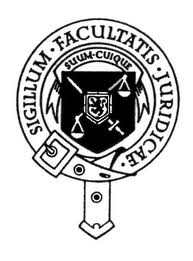Faculty reiterates opposition to ‘serious harm’ test for Scottish defamation actions

The Faculty of Advocates has reiterated its opposition to the introduction of a “serious harm” test before defamation actions in Scotland are allowed to proceed.
The Faculty’s intervention comes as the lawyer who represented Kezia Dugdale in a recent high-profile defamation case brought by a pro-independence blogger said the test would likely have prevented the matter from proceeding to court.
Campbell Deane, partner at BKF and Co, told The Scotsman that the case would probably have been “thrown out at a preliminary evidential hearing” if Scotland adopted the “serious harm” test already used in England and Wales and endorsed by the Scottish Law Commission (SLC).
Stuart Campbell, publisher of the Wings Over Scotland blog, sued Kezia Dugdale for £25,000 after she wrote a column expressing her shock and anger at a comment he posted via his Twitter account, in which he criticised an MP’s public speaking by referencing the politician’s father’s homosexuality.
However, a sheriff ruled that while Ms Dugdale was “incorrect” in implying that Mr Campbell was homophobic, her article was protected by the “fair comment” principle. He also said that, had he decided the case in favour of Mr Campbell, he would have awarded damages of just £100.
The Faculty has suggested that the Scottish government should gather more evidence on the impact of the “serious harm” test south of the border before pushing ahead with reforms.
In its response to a Scottish government consultation, the Faculty said it welcomed the introduction of the Defamation and Malicious Publications (Scotland) Bill and and welcomed many of its aspects.
However, it rejected proposals to introduce a statutory test of serious harm, similar to that in the Defamation Act 2013.
The Faculty said: “In England, as we understand it, the desire was to reduce an unmanageable volume of cases and filter those of no merit. That may be an appropriate response to the English legal system, albeit our experience from attending conferences and speaking to practitioners in London is that the introduction of the serious harm test is seen by many as both problematic and regrettable.
“It could not be suggested that the Scottish courts are currently struggling to deal with either an unwelcome volume of defamation cases or cases of dubious merit. Accordingly, the rationale for the English threshold simply does not exist in Scotland. The introduction of an unnecessary statutory threshold is, in our view, difficult to justify.
“It may be that further evidence ought to be sought from English practitioners in respect of the operation of this provision in practice, and this may inform and assist the proper consideration of this issue.”
Another issue raised in the consultation is the liability of secondary publishers, those not making but distributing a defamatory statement, such as newsagents, booksellers or internet intermediaries.
The Faculty noted that the wording of the relevant section of the draft Bill was “significant and wide reaching” and merited further consideration. Currently, the general position on “innocent publication” was that liability for secondary publishers could still attach, but defences were available.
“It is considered the present draft s.3 of the Bill would significantly expand the existing law, and would mean that there could never be an action against secondary publishers. The draft moves away from ‘innocent’ dissemination, and it is not clear why such a significant development is proposed or merited,” the Faculty said.
“In particular, in relation to the definition of ‘editor’ it is considered that the operation of s.(3)(d) would mean that a defamation action could not lie against any person who transmitted or distributed electronic material, even if they did not take reasonable care in relation to the publication, they knew or had reason to believe it contained a defamatory statement or if it was not possible to identify the actual author, editor or publisher.”








